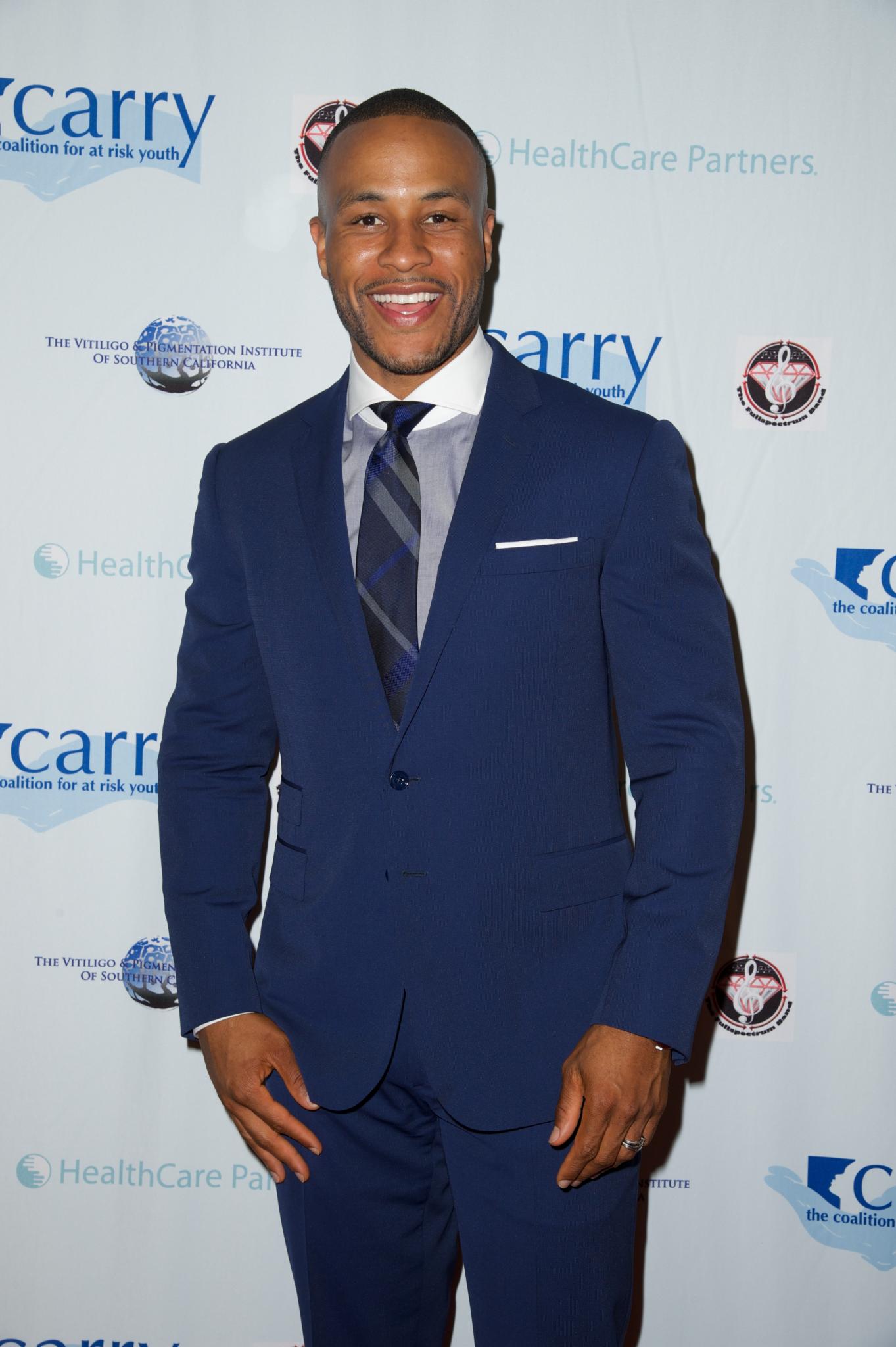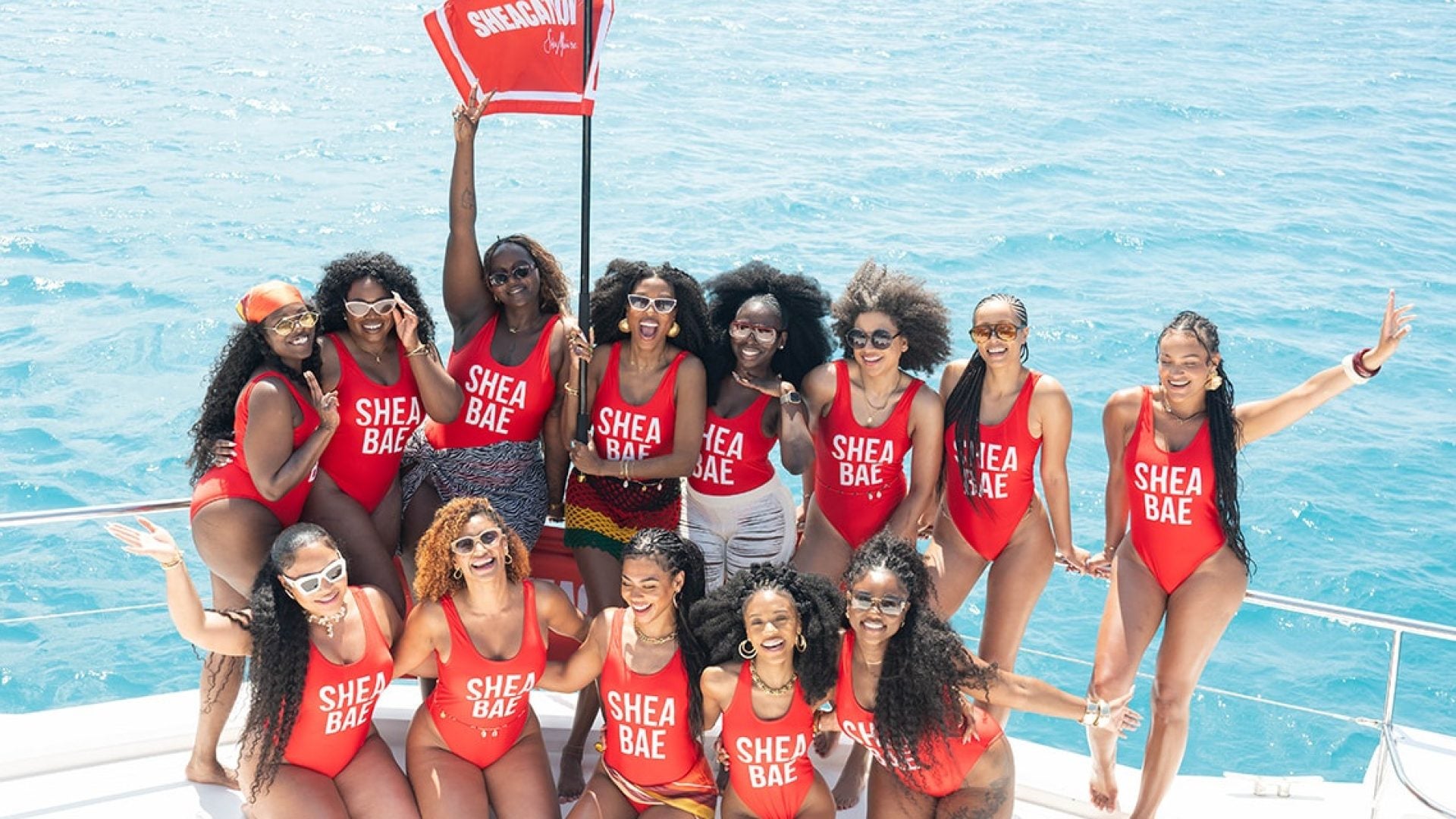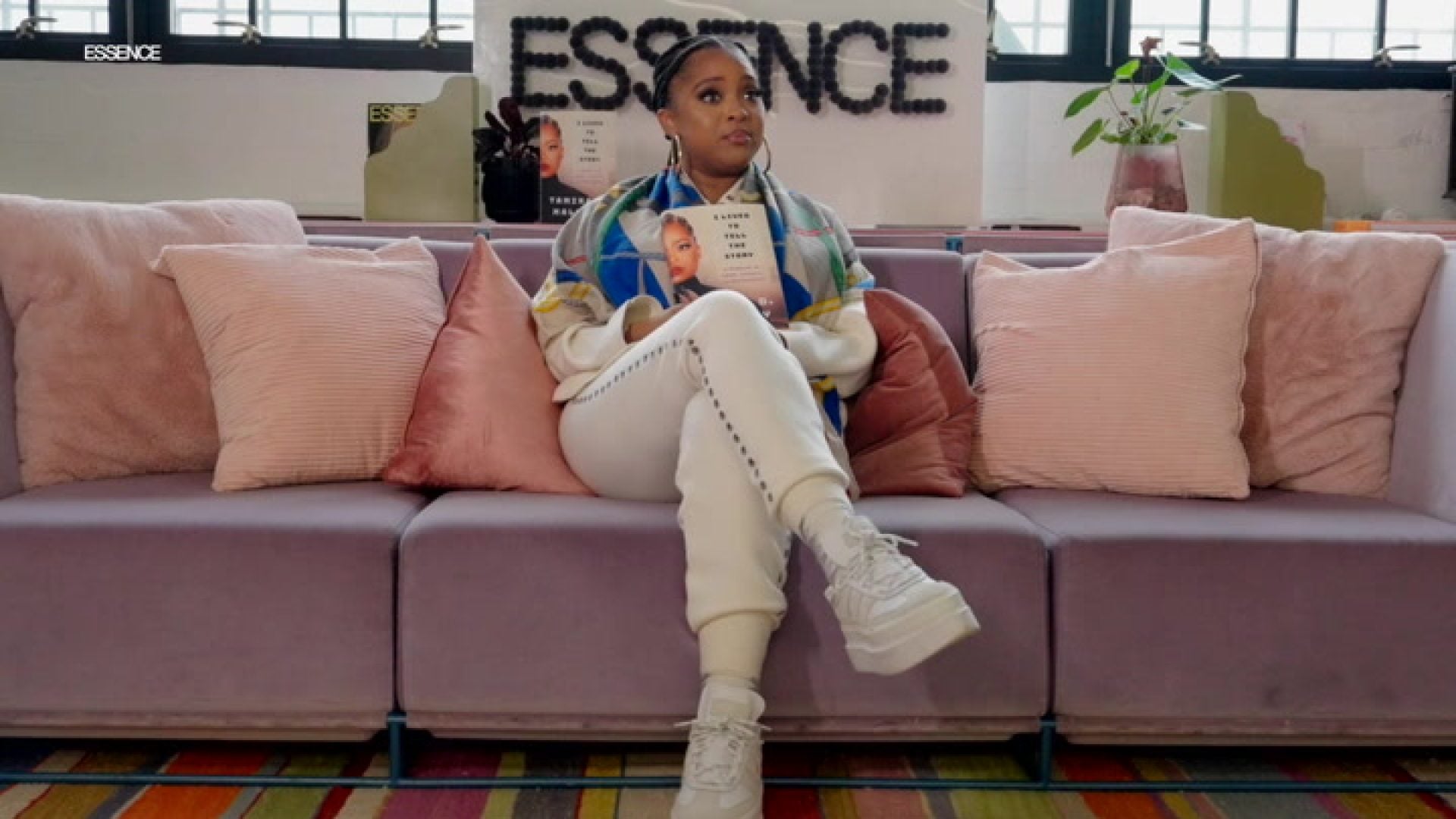
DeVon Franklin is the man behind some of our favorite films, like Karate Kid, Hancock and Annie. Franklin approaches everything in his life, from his marriage to actress Meagan Good to his multiple movie projects, with passion and gratitude. The media exec and man of God spoke with ESSENCE.com about how he discovered his divine purpose by doing what he loved.
Do you consider yourself to be a religious person?
I’m connected to religion and that’s how I access God. I’m in a relationship with God that can sometimes be informed by religion, but not dependent on religion. Religion is an organizational institution that is there to help access God and a relationship with God. I’m a Christian man. Now, I’m very open to whoever else is of different faiths, of course, but I definitely identify myself as Christian.
When was the last time you remembered to be grateful?
I was able to do a lot of press for Annie. Then leave to go do a lecture at this major university in Virginia. Just the opportunity to even be able to talk about what I’m doing, to talk about these movies, to be able to make movies. Every moment I’m just like, wow, thank you Lord that I can do this and have the opportunity to do it, and my wife and I can do it together. I’m incredibly grateful. It also makes you then want to make sure you’re paying it forward so that others can know and feel their own sense of gratitude by what you share or what I can share.
Who have been your greatest teachers in life?
My uncle, who was also my pastor, Dr. D.J. Williams from Oakland. He’s been a huge influence in my life. Also, my mother, who raised my brothers and I alone. It went from us being on welfare while she was working at a daycare center, to her ultimately owning the daycare center. She became self-sufficient. Seeing that example in her has been very motivational. Then as I have grown into the business, Will [Smith] has been a mentor, T.D. Jakes has been an incredible mentor and friend. We’ve worked together for over 10 years and I’ve learned so much from him about life and about ministry and purpose. My wife has helped me become more well-rounded as a man. So those definitely are a few.
How did you get started in the film industry?
I did an unpaid internship at the management company that managed Will Smith, working for Benny Medina and James Lassiter and all those guys. I was 18 years old. I didn’t know anything. The more that I began to get experience with it, the more I began to realize I like it, and I enjoyed it, and that I actually was building a competency to be able to do it. That was validation not only of my career pursuit but also validation of purpose too. I thought I could do it, I thought I wanted to do it, but now I’m getting evidence that it’s what I’m supposed to do, or at least one of the things I’m supposed to do.
Has working in film helped you discover your purpose?
I’ve always wanted to use film as a medium to change people’s lives and change culture and change perception. I did not know if it was God’s purpose for my life, and I didn’t know if it was what I was supposed to do. I’m getting better. I’m still learning.
Have you ever worked on a film that touched you so deeply that you feel like it changed your spiritual DNA?
Probably The Pursuit of Happyness. It’s just one of those stories that shows you’ve just got to keep going. When you keep going and you keep persevering, and you keep holding onto the dream, and you keep having faith, that impossible things can happen. It’s not going to come without trials and tribulations and conflict and detours and depression and disturbances. All those things are part of it, but if you push through it you’re going to get there. I remember seeing that movie for the first time and we were all crying because it was so powerful to have seen what Will did in that movie to bring that idea and those things to life. That was definitely a film of the films that I’ve worked on that has really resonated deeply.
Why did you sign on to produce a remake of Annie?
We felt that it was important to redo Annie in a way that captured how diverse the world is. Every day it’s becoming more diverse. We felt like this was a classic tale that was more about the characters and themes, less about race. We felt that to modernize it and make it contemporary, that casting it, not being specific to race because the original obviously was predominately a white cast, we felt that casting it very multi-cultural was a way to really reflect the world today.
Is there a place right now for film to respond to incidents like Ferguson and the Eric Garner case?
I definitely think that the film, television, media community has a responsibility. There are responses that can be more specific to the issue, and there are responses that can help continue to shape and shift and mold and change the way that people of color are perceived on a local level, on a national level and on a global level. Even a movie like Annie, you have a young girl of color that’s the center of the story, and she finds a father, a positive upwardly mobile African American man. This message and this movie and these images are going all around the worldI do feel film and television are incredibly powerful mediums on helping shift that perspective and helping change that imagery.
This interview has been edited and condensed. Annie is in theaters now.




